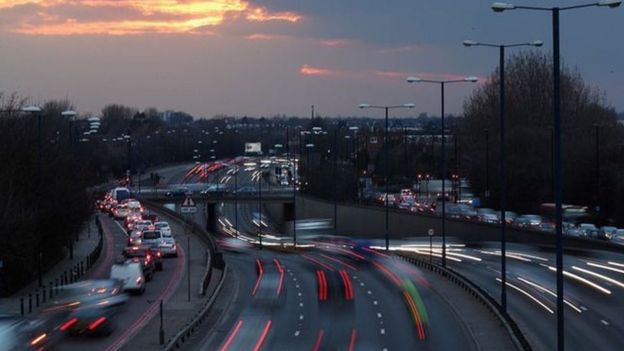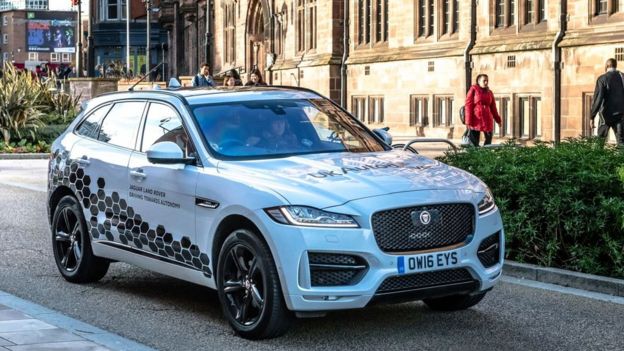Driverless cars on UK roads by 2021 – really?
Remember the days when the Budget was secret and anybody who leaked it got fired?
Well, nowadays much of it gets dribbled out days in advance and over the weekend there was an eye-catching leak – or rather Treasury press release – about new money for technology.
The most striking element of a package which included £75m for artificial intelligence research, £160m for new 5G mobile phone networks and £100m to train more computer science teachers, was the Chancellor’s plan to bring driverless cars to our roads.
It was not the fact that he saw this as a vital technology where the UK could be a leader which surprised me – we have plenty of groundbreaking research under way – but the timescale for this autonomous driving future.
The government is promising “bold reforms” to encourage a driverless car industry which its press release says “will be worth £28bn to the UK economy by 2035”.
A startling figure in itself but then there is this:
“These measures will help realise the Chancellor’s vision that fully self-driving cars will be on UK roads in as little as three years.”
Surely that’s a stretch, I thought, if by fully self-driving they mean cars with nobody behind the wheel to take over? Wouldn’t that mean radical changes to the rules of the road which currently insist that an alert and sober human has to be in charge of a vehicle at all times?

I put this to the Treasury and an email came winging back with this line in block capitals:
YES – THIS WOULD MEAN FULL SELF-DRIVING CARS WITH NOBODY BEHIND THE WHEEL.
The message went on to explain that an amendment to the Road Traffic Act would indeed be needed under which the Secretary of State for Transport would allow individual manufacturers to take their cars onto the road without a human operator, but only after they had proved they were safe.
It seems unlikely to me that just three years from now, the technology will have advanced far enough, or any secretary of state will be brave enough to allow a fully driverless car to operate on any but the quietest of roads.
But I spoke to someone who’s worked in both government and the autonomous vehicle sector to get a view of how likely we are to see full autonomy by 2021.
Until recently, Lucy Yu worked in the government unit responsible for driverless car regulation. She’s now director of public policy for FiveAI, a British company building software for autonomous vehicles.
FiveAI is leading a consortium aiming to put driverless cars on the roads in London in 2019, though they will still have a driver behind the wheel at that stage.
She says getting to full autonomy will involve a lot of testing not just on private roads but in computer simulations: “We will need to test all the edge cases,” she explains. “Different scenarios when it’s dark or rubbish blows across the road. For that we can’t use the real world as a sandbox.”
Then at some stage FiveAI hopes to take its vehicle to the roads unaccompanied by a driver.
There are plenty of manufacturers claiming they have vehicles with high levels of autonomy, but at the moment they all still need the driver to take over in some circumstances.

I’ve always thought this sounded unsatisfactory – drivers who have been able to take their hands off the wheel for 20 minutes may not be well prepared to take control when the unexpected happens.
Lucy Yu agrees – FiveAI’s plan, when it eventually offers a service to the public, is to go straight to full autonomy without intervening steps. But will that happen on the timescale envisioned by the Chancellor?
“By 2021 we expect our technology to be able to operate without a human driver,” she says, although she makes it clear that would be under a quite limited set of circumstances, depending on weather conditions, type of road and time of day.
But she goes on to say: “We plan to operate our early services still with remote supervision to provide an extra layer of review of general driving conditions and to add to consumer confidence.”
I’m taking that to mean no, the public won’t be ready by 2021 to see a car with nobody at the wheel cruising past. Getting the technology right is one thing, sorting out everything else could be messy.
Later on Monday, the Chancellor will get a first-hand view of the progress towards full autonomy.
He is due to get a ride in a driverless car in the West Midlands – and already the political sketchwriters are rubbing their hands with glee at the metaphorical potential this provides.
Nobody seems to get sacked for leaking the Budget any more – but whoever dreamed up this photo opportunity may be nervous about their career prospects.
Source: BBC.com













